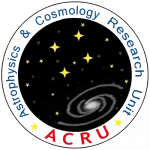The past decade has seen a significant growth in cosmological observations that have placed increasingly tighter constraints on the cosmological model and the basic parameters that describe it. While we have an excellent phenomenological model a more fundamental picture is largely missing, considering both the very earliest times where high-energy processes are relevant and in the late-time universe, where we are in the curious position of living in a universe that is 95% dark.
Observational progress in multiple directions has continued at a rapid pace in the last few years and will continue to grow with a new generation of cosmological surveys. The time is right to pause and reflect in a tranquil setting on current progress and existing tensions in cosmological datasets, to review the theories that have survived the onslaught of data, and to identify the directions in which cosmological theory needs to develop. A conference involving international experts in these areas provides an opportunity to plan for the theoretical advances that are required in the next decade to keep pace with the anticipated explosion of cosmological data.
“Cosmology on Safari” will focus on the interplay between cosmological models and data, with emphasis on the challenges that remain in cosmology. Topics covered during the conference will include:
- The early universe: constraints on primordial perturbations, dark radiation, gravitational waves and inflationary models from the cosmic microwave background
- The late-time universe: constraints on dark energy, dark matter, theories of gravity and the nature of the primordial perturbations from galaxy redshift surveys, cosmic shear, galaxy clusters, baryon acoustic oscillations, type Ia supernovae and laboratory alternatives



